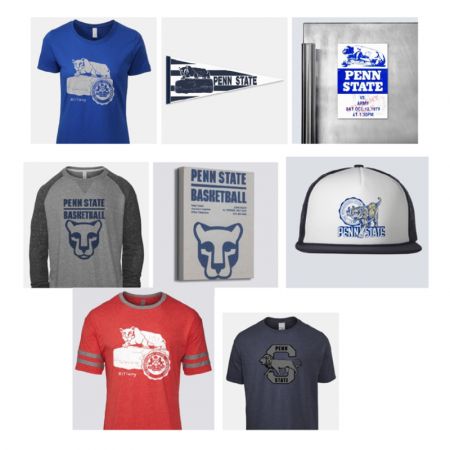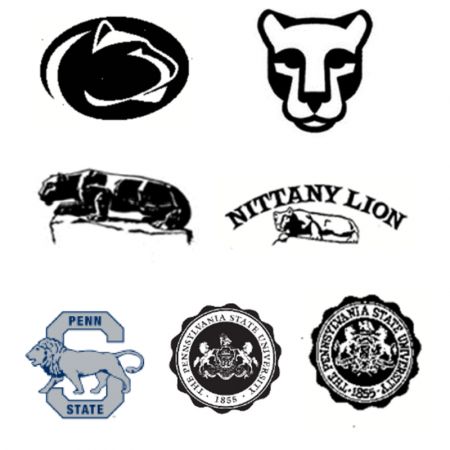- within International Law topic(s)
A Pennsylvania jury has found that Vintage Brand infringed Penn State's trademarks by selling unlicensed goods with designs associated with, but not owned by, Penn State. The verdict is a major win for brand owners and licensors, who were at risk of losing control over their brands and designs were the decision to have favored Vintage.
Vintage Brands' Sale of Merchandise Associated with Penn State
Vintage Brands, an online retailer owned by Chad Hartvigson, a former minor league baseball player and co-defendant in the case, makes its business selling "vintage" merchandise by using old designs and designs it claims are in the public domain and not subject to trademark rights owned by any colleges or sports teams. In the case at issue, Vintage dedicated a page on its website offering merchandise that fell under the header "Penn State Nittany Lions" showcasing this merchandise:

Source: Pl.'s Second Amended Compl. ¶ 79, ECF No. 67,
The Pennsylvania State University v. Vintage Brand LLC et
al., Case No. 21-cv-01091
Penn States sued Vintage Brand, print-on-demand company Prep Sportswear, and Chris Hartvigson (founder of both companies) for willful trademark infringement of numerous trademarks, including the trademarks PENN STATE and PENNSYLVANIA STATE UNIVERSITY and these design marks:

Source: Id. ¶¶ 33-35, 37-38, 43-44
Penn State is not the only university who has taken issue with Vintage's business model. Other universities, such as Purdue, Arizona, Arizona State, Cal Berkeley, UCLA, Colorado, Oregon, Oregon State, USC, Stanford, Utah, Washington and Washington State have also filed lawsuits against Vintage for the same claims – that Vintage is using their university trademarks without permission for profit. Penn State's case is the only case that has gone to trial.
In addition to its public domain fair use defense, Vintage argued that its use of "PENN STATE" and "PENNSYLVANIA STATE UNIVERSITY" is merely ornamental and does not serve a source identifying function (Vintage also turned this defense into a counterclaim to cancel the PENN STATE trademark registrations). Vintage argued that fans purchased its goods not because they believed they were purchasing goods from Penn State, but because they were proclaiming their affection for the school, which is merely an ornamental/aesthetic use of the registered trademarks associated with the designs and not subject to trademark infringement. Vintage further argued that consumers are not likely to be confused that these products were affiliated with, sponsored by, or licensed from Penn State because Vintage's website displays this disclaimer: "Vintage Brand is not affiliated with, licensed, or sponsored by any college, professional sports team or league."
In the end, the jury found that Vintage infringed the PENN STATE trademark, the university's seal, two stylized lion logos and two versions of the "Nittany Lion Shrine" marks.
Jury Verdict Confirms "Association" Is Covered Under the Lanham Act
In denying Penn State's motion for summary judgment earlier this year, Judge Matthew Brann stated that Penn State's case turned on the issue of whether, "[u]nder the Lanham Act, does a symbol identify the source of the goods if it merely creates an association between it and the trademark holder?" As applied to the case at hand, the jury was tasked with deciding whether the designs used by Vintage, even if not registered trademarks owned by Penn State, so closely resembled Penn State's designs and created such an association with Penn State that Vintage's sale of goods bearing the marks constituted trademark infringement.
In the end, the jury found that the use of designs so closely related to Penn State's trademarks created an association with Penn State that could not be broken by disclaimers.
The verdict in this case is a huge win for sports teams and universities, and all brand owners in the U.S. This case was clearly not about lost sales – the defendants were ordered to pay Penn State $28,000 in compensatory damages, which is mere pennies in relation to what it cost Penn State to bring this case to trial. A successful Vintage defense—that its team-branded merchandise was merely consumer expression and not a means of identifying source—had the potential to disrupt a multi-billion-dollar licensing business model that trademark owners use to control and profit off their brands and goodwill. While it is predicted that Vintage Brand will appeal, for now, brand owners can breathe a sigh of relief that there are still strong trademark protections over their brands, including that even parties using designs that are not owned by a brand, but create a mental association with their brand, may be liable for trademark infringement.
The content of this article is intended to provide a general guide to the subject matter. Specialist advice should be sought about your specific circumstances.


